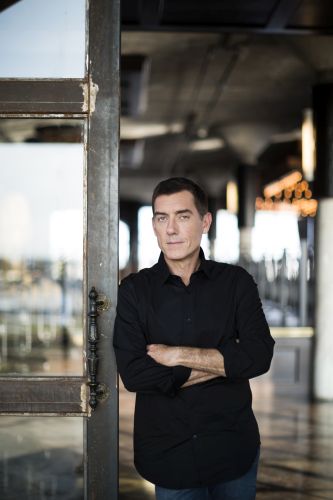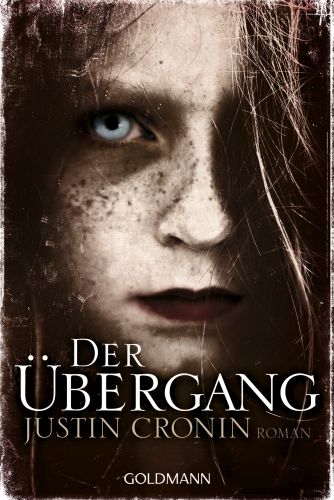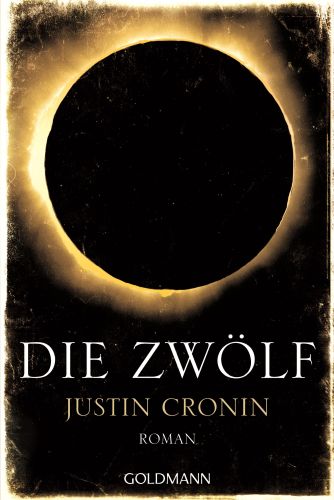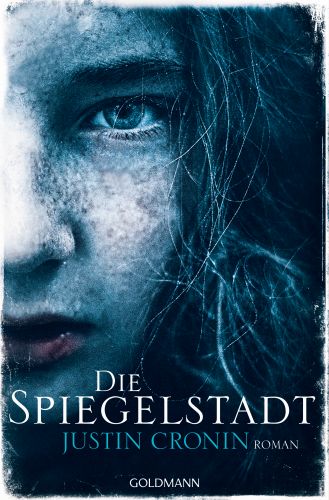About structures, relationships and essentiel question in the Passage-Trilogy

„What I did was take four traditional forms of female strength and disperse them into four characters. Amy is spiritual and intuitive strength. Sara, maternal strength. Lore, sensual strength. And Alicia, warrior strength. „
Almut Oetjen talked with Justin Cronin about his life and the „Passage“ -Trilogy. The questions and answers refer to all books and there could be a little spoiler in it.
Phantastisch-lesen: Let us begin with who you are. Would you tell us something about yourself? I understand, you began as a literary novelist and turned to genre novels with your Passage Trilogy.
Justin Cronin: I’m a husband, a father of two (mostly grown) children, who happens to write novels for a living and is very lucky to do so.
phantastisch-lesen: Please, describe to us a typical day spent writing. Are you an organized author?
Justin Cronin: I try to be organized. Generally, I write from 9 -3 o‘ clock, then get some exercise (these days I mostly swim), pick up my son at school, and that’s a day.

Phantastisch-lesen: How much of the whole story did you know when you started writing “The Passage”, the first part of your trilogy? Did you have, more or less, a complete outline for the trilogy, or at least for book one?
Justin Cronin: I had an outline for book one and summaries of two and three. When I moved on to volumes two and three, I made more detailed plans for each.
Phantastisch-lesen: Your epic story telling is impressive. Each part of the trilogy follows the classical structure of beginning, middle and end. However, within this structure, you are switching back and forth between times and settings. The usual way of writing about reality is that the text is linear, which contradicts our perception. How do you control your material, the development of characters and set pieces? Do you work with graphic time lines, flow charts, or spreadsheets?
Justin Cronin: I don’t really do very much in terms of record keeping. I just try to keep it all in my head. The text feels more natural to me that way. If you know the story, and know your characters, that’s pretty much what you need.
Phantastisch-lesen: Do you think, fracturing the content also keeps readers interested over a time span of three books in about six years? Without loss of understanding, one might as well start reading “The Twelve”, followed by “The Passage”. However, “The City of Mirrors” has to be read as the concluding part. Do you agree?
Justin Cronin: I think the books are best read in order. I conceived the project as a single story that just happened to be broken into three volumes.
Phantastisch-lesen: Dystopian novels for young adults usually have a love story at their center, which often seems to be the main concern, with the dystopian setting as a, more or less, tapestry. Your trilogy’s core piece obviously is the horror story. However, it has a religious undercurrent containing Love and Redemption. I have the impression, the horror story would not work without these issues, which, eventually, are rising to the surface.
Justin Cronin: I don’t think The Passage Trilogy is a horror story. To be honest, I’m not a horror reader and am not intimately familiar with the genre. I conceived The Passage as a story driven by its characters. They just happened to be running for their lives at all times. As for family as a subject—really, what else is there?
Phantastisch-lesen: To me, there are two relationships at the core of the story: The father-daughter relationship between Amy and Wolgast, and the sad relationship between Alicia and Zero. There are more parallels between Amy and Alicia, pairing them as some kind of supernatural sisters. While Amy and Alicia seem to be the main characters of the first two books, Zero/Tim Fanning appears to be the main character of book three. Do you see your trilogy as a story about strong female characters plus Zero, placing the males in the second row?
Justin Cronin: Female characters drive the story. The men do important things in the novels, but it’s the women who are really in charge. What I did was take four traditional forms of female strength and disperse them into four characters. Amy is spiritual and intuitive strength. Sara, maternal strength. Lore, sensual strength. And Alicia, warrior strength.
Phantastisch-lesen: The name of Wolgast is an interesting choice of yours, as this seems to be a quite unusual and less known name for a person. However, it is a well known town in northeastern Germany. Is this intended as reference to the connection Wolgast-Peenemünde-Wernher von Braun-V2? This comes to mind, as there are other Nazi references in your books.
Justin Cronin: No connection. I named Wolgast after a friend who was going through a bad time. Originally I used the name as a placeholder, just something to call the person until I picked something else, but I waited too long and the name stuck.
Phantastisch-lesen: Did you find it hard to have Amy vanish from the plot for about 300 pages in “The Twelve”?
Justin Cronin: No, that was the plan. The story’s design required it.

Phantastisch-lesen: In “The Twelve” certain humans are bigger monsters than the virals. Horace Guilder becomes a Nazi in all his banality and monstrosity, ending up as a caricature of a leader of a sect. Would you agree to that?
Justin Cronin: Yes. He’s like all evil bureaucrats, thoroughly banal, a man who’s fallen for his own press releases.
Phantastisch-lesen: Is there any reason for placing the fascist society of part two in the north of the USA, while the forces saving mankind are developing in Texas, the state, one character in your trilogy hates so much?
Justin Cronin: Not really—I just happened to be familiar with both places, and they worked for the story. Writers choose a lot of things in a story simply because they make sense in terms of time, space and action. Iowa worked well because it’s in the middle of the country; Texas made sense to me because, having lived here for 14 years, I think the qualities of self-reliance that the state historically prides itself on would come in very handy during a vampire apocalypse.
Phantastisch-lesen: In this context, let me say, that I very much like the way you strip down your characters to their essence. What makes a human a human, what makes a vampire a vampire? The virals are creepy hybrids, who deep inside have a sort of knowledge, or remembrance, of their former existence as human beings. Although they are not human any longer. In contrast, Horace Guilder and his henchmen are as despicable as they are human. Would you agree to the idea, that the perception of what it means to be human lies at the heart of your trilogy?
Justin Cronin: That’s absolutely part of it. “What it means to be human” is the central question of all literature.
Phantastisch-lesen: Upon reading „The Passage“ for the first time, I thought: Well, this is going to be a quest. But I was wrong. In fact, your trilogy has more of an Odyssey, especially the second book. So, I was tempted to ask: who’s waiting for Amy in the end? But you came to full circle using another outcome than I expected. Did you have this outcome in mind from the beginning?
Justin Cronin: I knew the end from the start. The end is *in* the first sentence of the first book, in fact. I think a book needs to know itself that way, in order to earn the reader’s trust.
Phantastisch-lesen: Speaking of an Odyssey, the Iliad resonates as well, as the books are dealing with war and wrath. And there is a city called Homer. This trajectory is complemented by themes such as theology and faith, Project NOAH, the synopses at the beginning of books two and three are wonderfully imitating Genesis. There are a lot more biblical references. Can these references to some of the most important books in Western culture be avoided in a story about primal forces, the dawn of a new world, or, as some characters would like to establish: world order?
Justin Cronin: Well, I certainly found them unavoidable. Nor did I wish to avoid them. It’s a mistake, in my opinion, to think of any book as something “entirely new.” Behind every writer is a vast bookshelf of influences, the stories that have told them how to live and how to write. The Passage Trilogy is full of references, both overt and covert, to other books and stories.

Phantastisch-lesen: How did you feel after having finished the trilogy, which must have been an important part of your life for quite some years?
Justin Cronin: Finishing any novel is, for me, a melancholy experience. Writing a novel is a lot like raising a child. Your job is to take it to the place where it will leave you.
Phantastisch-lesen: Some of our readers would like to know, whether you are working on your next book and wonder what it might be about. So the question is: „What next?“
Justin Cronin: Right now I’m sorting through a few long-delayed projects to see which one is asking me to write it next. I can’t be more specific than that.
Phantastisch-lesen: Thank you so much for taking the time to answer these questions, and best wishes for your next book.
Thank you very much, Almut Oetjen, for wonderful questions and translating the interview into German! ![]()
